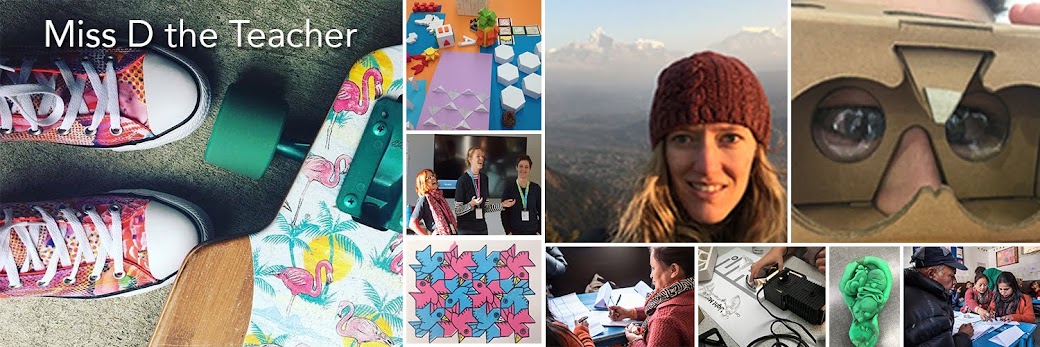Is #edchatNZ an echo chamber? A place where we constantly pat each other on the back, encourage each other, however, not challenge and drive each other to new heights? Nat Torkington recently commented on this. Steve Mouldey and I have discussed this. However, #edchatNZ also genuinely needs the warm fluffies one gets from participating. The warm glow you get from no longer being a lone nut, but a respected professional, standing up for positive change in your school and in New Zealand education. The question then in Maurie Abraham's words, is how to be warm and demanding? And this in a limit of 140 characters in a fortnightly twitter chat.
This year, with the inspiration of Tim Kong (a devil's advocate, aka, thought provoker on any day), and Mat Nicoll's great idea, we introduced a Devil's Advocate to #edchatNZ. Honest, respectful discussion and challenge is a key aspect of making sense of our ideas and thoughts. We need to defend our arguments to learn where they are weak. Not to tear our ideas down, but to build them better and stronger (PS. Read Ed Catmull's Creativity Inc., I love the idea of the Pixar brain trust). At the start of the chat, the moderator introduces the devil's advocate. This person also changes their Twitter avatar to our devil's advocate logo to ensure that we communicate clearly why there are such touch questions and comments being fired from the person. I'm giving it a few more weeks before I send out a survey to the #edchatNZ community to see how they are doing.
 |
| The devil's advocate avatar. |
As for me.. I have LOVED the introduction of the devil's advocate. I feel more challenged by the chats, like I have sped up my learning to a whole new level. The devil's advocate also seems to have brought about more diversity in the #edchatNZ group. There appears to be an increased number of viewpoints shared, and justified. I also love that for the 'pros' who have been part of the community for so long, I can offer them a new level of challenge in the chat. The devil's advocate has also helped me see more of the deeper knowledge that its participants have, as well as identify some areas that we might need to talk about some more. For example, what exactly is the purpose of education?
A special thank you for our three devil's advocates so far, Tim Kong, Steve Mouldey and Megan Peterson. You have all been fantastic. I hope you wear your badge with pride! And thank you for challenging me at a whole new level too!
So the question remains now, is #edchatNZ an echo chamber? Or is it a place of challenging but welcome, discussion and debate? Warm and demanding? How might we create a warm but demanding community?
PS: If you have ideas for smashing echo chambers or your want to be our devil's advocate one night, get in touch at danielle@edchatNZ.com.




















